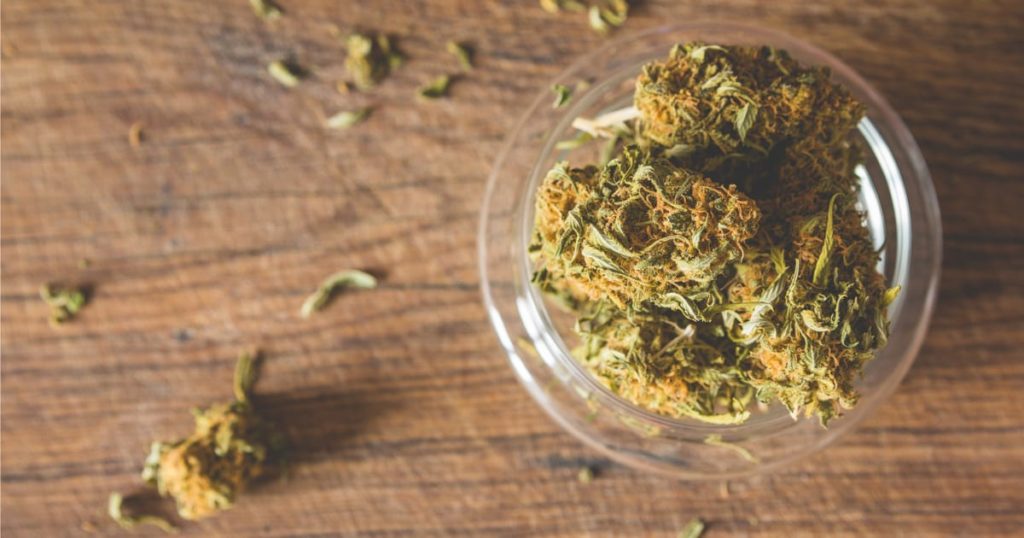How Marijuana Makes You High
The THC chemical in marijuana is responsible for the high people feel from marijuana. THC activates areas of the brain responsible for pleasure. When it enters the brain, it may produce:
- Relaxation
- Euphoria
- Distorted perceptions
- Poor coordination
- Difficulties with thinking, learning and memory
Social acceptance of marijuana use has spiked dramatically in recent years. However, marijuana drug abusers run a risk of developing problems with marijuana addiction. Doctors diagnose this form of addiction as part of a more broadly defined condition called marijuana use disorder.
Can You Be Addicted to Marijuana?
Data shows about 9 percent of marijuana users become addicted. The risk is higher among those who:
- Start young
- Abuse marijuana on a daily basis
- Have an underlying mental health disorder
Symptoms of Marijuana Addiction
People with a marijuana use disorder show signs of addiction similar to other substance use disorders, including:
- Preoccupation with obtaining and using marijuana.
- Tolerance, which is generally demonstrated by needing more marijuana to get the same effects or needing to use it more often.
- Significant impairment to interpersonal relationships, work and/or educational activities. In other words, marijuana use interferes with the ability to develop or maintain relationships, results in failure to fulfill responsibilities at home or work, or results in an overall lack of motivation and productivity in the user’s life. Marijuana addicts often continue to use marijuana even though they know it is causing problems in their life.
- Missing personal obligations.
- The inability to quit using marijuana despite negative consequences. Continued unsuccessful attempts by marijuana addicts to quit using is a significant sign that a marijuana use disorder has risen to the level of addiction.
- Withdrawal and other physical symptoms that occur when marijuana use stops.
Marijuana Withdrawal Symptoms
Withdrawal symptoms are one of the key features of substance use disorders. Long-term marijuana users often go through marijuana withdrawal when they try to quit. Marijuana withdrawal symptoms include:
- Anxiety
- Drug cravings
- Irritability
- Insomnia
- Changes in appetite
- Headaches
- Mood swings
- Marijuana cravings
- Chills
THC is the psychoactive substance in marijuana responsible for the “high” feeling. It remains in the body for a long period of time. Marijuana withdrawal may not kick in until about seven to 10 days after quitting use. For this reason, many marijuana abusers believe they can quit anytime they want to. They don’t notice withdrawal symptoms in the first four to six days, so they believe they aren’t dependent. They begin smoking or ingesting again before marijuana withdrawal symptoms set in. Despite the legalization of marijuana in some states, marijuana is still considered a Schedule I controlled substance under the Drug Enforcement Administration. Schedule I drugs are deemed by federal law to have no currently accepted medical use. They’re also the most dangerous of all the drug schedules with high potential for abuse and severe physical and psychological dependence.
Effects of Marijuana Use
It takes only a few minutes for the heart to speed up and blood vessels in the eyes to expand after smoking marijuana. Expanded blood vessels cause the red eyes and use of eye drops frequently associated with smoking pot. Marijuana affects users’ physical health. Marijuana abuse increases the risk of:
- Heart palpitations
- Arrhythmias
- Heart attack
- Respiratory problems from marijuana smoke:
- Chronic cough
- Chest illness
- Lung infections
Ongoing research is shedding new light on the consequences of long-term marijuana use. Learning and memory are significantly impacted. These effects can last for years after stopping marijuana use. Long-term effects of marijuana are especially risky for those who begin using the drug at an early age. Marijuana abusers report a number of problems including:
- Less satisfaction with life
- Poor mental and physical health
- Interpersonal conflict
- Less academic and career success
Studies show that marijuana abusers are more likely to:
- Drop out of school
- Be late or absent from work
- Jump from job to job
Marijuana abuse impairs judgement and coordination. This makes driving under the influence of marijuana extremely dangerous. Marijuana use more than doubles the risk of being in a car accident. The risk is even higher when marijuana is mixed with alcohol abuse. There’s a link between mental illness and chronic marijuana use. High doses can cause severe paranoia and hallucinations. Marijuana abuse and the development of psychosis later in life is especially prevalent in teen pot smokers.
Marijuana Addiction Treatment
Currently, there are no medications available that can help with treatment for addiction to marijuana. But, some pharmaceuticals have been used to treat other medical issues that have arisen in relation to marijuana use. For instance, medical professionals may use sleep aids to treat insomnia that results from marijuana withdrawal. And, there are a variety of non-pharmaceutical approaches to treat marijuana addiction. Treatment methods include cognitive behavioral therapy, behavior modification, group and individual therapy, equine therapy, and yoga/meditation. Sources: https://www.drugabuse.gov/publications/research-reports/marijuana/marijuana-addictive https://www.drugabuse.gov/publications/drugfacts/marijuana https://www.drugabuse.gov/publications/research-reports/marijuana/available-treatments-marijuana-use-disorders

